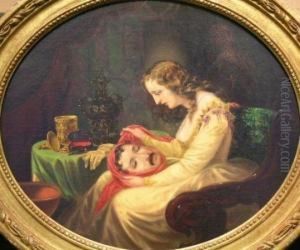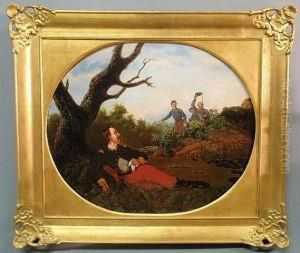William A.K. Martin Paintings
William Alexander Parsons Martin, commonly known as W.A.P. Martin, was not an artist in the traditional sense of a painter or sculptor but was an influential figure in the world of education and sinology—the study of Chinese language, literature, and history. Born on April 10, 1827, in Livonia, Indiana, Martin was an American Presbyterian missionary who became a significant educator and translator in China during the late Qing Dynasty.
After graduating from Indiana University in 1846 and completing his theological training at the New Albany Theological Seminary, Martin was ordained as a Presbyterian minister. In 1850, he travelled to China as a missionary. His early years in China involved evangelical work and the study of Chinese language and culture.
Martin's contributions to China were largely in the realm of education. In 1869, he was appointed the president of the Imperial Tungwen College in Beijing, one of the first institutions aimed at teaching Western knowledge and languages to Chinese students. Under his leadership, the college expanded its curriculum and played a pivotal role in introducing Western science, technology, and thought to China.
Additionally, Martin was an accomplished sinologist and author. He wrote several books on Chinese language and culture, including 'The Chinese: Their Education, Philosophy, and Letters' and 'The Lore of Cathay,' which helped bridge understanding between China and the West. His translations of Western works into Chinese, notably international law texts, had a profound impact on Chinese modernization efforts and legal reforms.
Martin was also involved in diplomatic efforts, assisting in negotiations during the Treaty of Shimonoseki, which ended the First Sino-Japanese War in 1895. His role as an educator, translator, and intermediary made him a respected figure both in China and abroad.
He spent much of his life in China and witnessed significant historical events, including the Taiping Rebellion and the Boxer Rebellion. In his later years, Martin continued to write and advocate for cross-cultural understanding between China and the West. He passed away on December 17, 1916, in Beijing, leaving behind a legacy of contribution to education and international relations.

